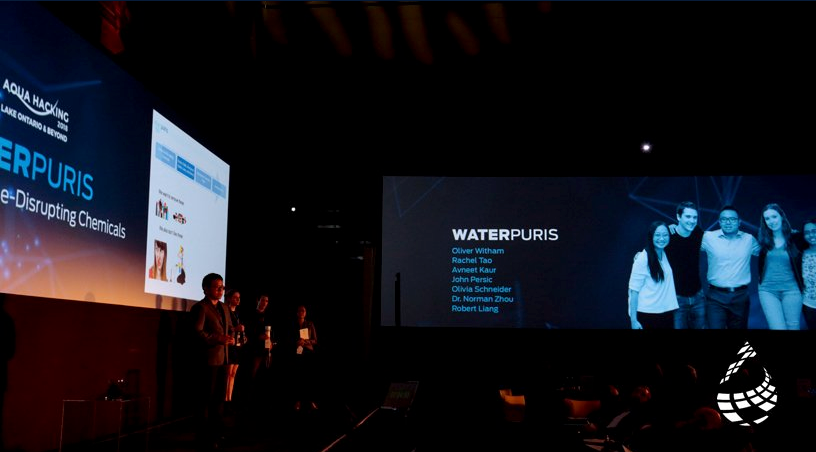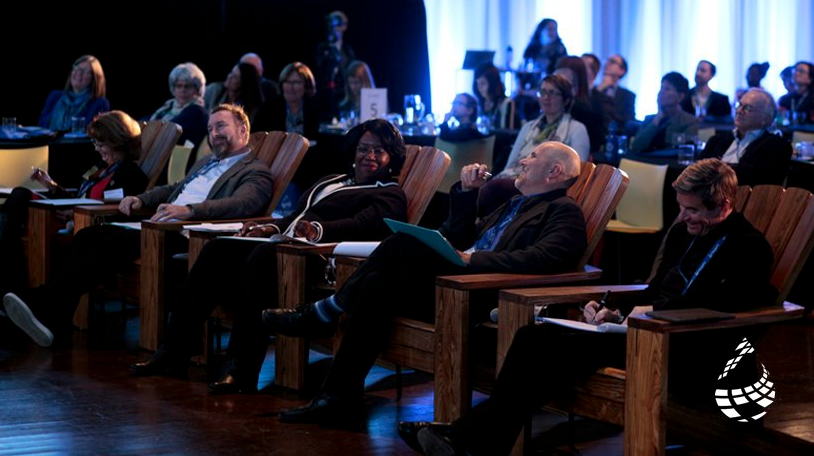On October 25, as part of Ontario’s Water Innovation Week hosted by WaterTAP at the Design Exchange in Toronto, five teams of young innovators pitched their clean-tech solutions during the AquaHacking 2018 Lake Ontario Challenge. The challenged offered teams the chance at $50,000 in prize money and a spot at local incubators for the young water technology innovators. A group of students from the University of Waterloo claimed second place, wowing the judges with their solution to remove endocrine disruptors before they enter our water systems.

WaterPuris presenting their idea at AquaHacking 2018
“I was exposed first-hand to the serious effects that endocrine disrupting chemicals are having on the environment while working with Professor Mark Servos, analyzing rainbow darter fish in the Grand River Watershed,” said Robert Liang, postdoctoral student in Waterloo’s Faculty of Engineering and founder of the second-place team, WaterPuris. “If these chemicals could affect the behaviour and fertility of male rainbow darters, this problem could potentially be transferred to humans.”
Endocrine disruption in water systems is a worldwide phenomenon. Estrogen in birth control pills and other chemicals that mimic natural hormones are known to impact fish health in trace amounts as low as one part per trillion, far below what conventional wastewater treatment can typically remove.
WaterPuris is tackling this issue at the source – your toilet. By breaking down and removing the endocrine disrupting chemicals before they enter wastewater treatment plants, their hope is that their technology will lessen the load for the treatment facilitates, allowing them to run as efficiently and economically as possible.

AquaHacking 2018 jury members listening to pitches.
“What makes AquaHacking special to me is the fact that the issues these young innovators are solving are championed by leaders from across the water sector, including ENGOs, municipalities and water organizations, and that they are designed for impact,” said Bernadette Conant, AquaHacking 2018 Jury Member and Chief Executive Officer of Canadian Water Network, which is hosted at Waterloo. “But what really blew me away during the Finals was the impressive passion and talent of what are certainly the leaders of Canada’s next generation of water technology leaders.”
For a full list of winners, visit the AquaHacking website.